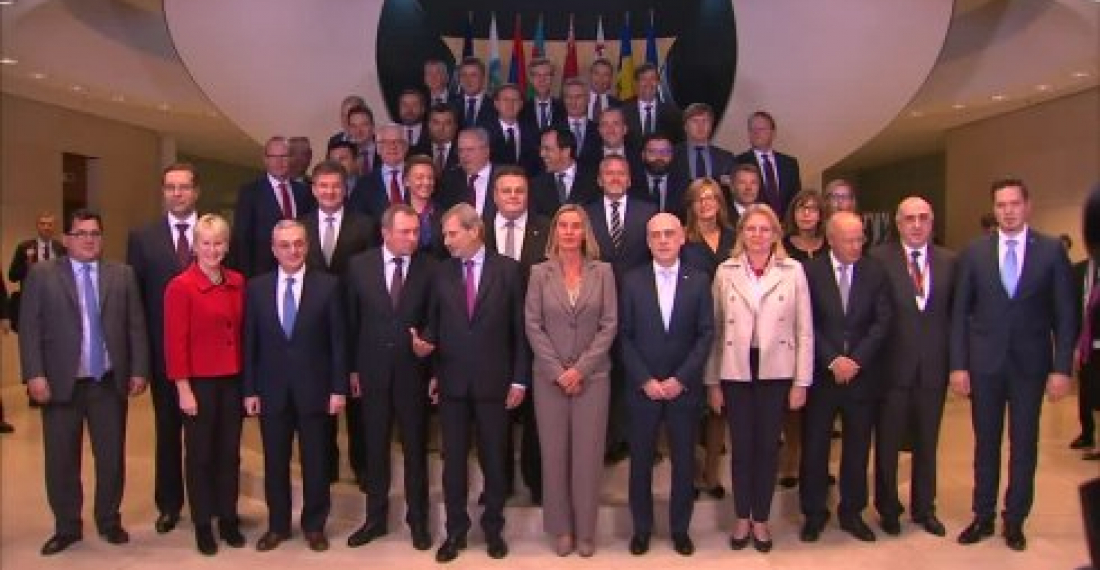The Eastern Partnership (EaP) ministerial meeting bringing together EU foreign ministers and their counterparts from the six Eastern Partnership countries (Armenia, Azerbaijan, Belarus, Georgia, the Republic of Moldova and Ukraine), as well as key stakeholders involved in the region, met in Luxembourg on 15 October. The EU High Representative for Foreign Affairs and Security Policy Federica Mogherini chaired the meeting.
The foreign ministers took stock of progress in achieving by 2020 the 20 deliverables adopted at the last Eastern Partnership Summit in November 2017.
The meeting took place one year after the last Eastern Partnership Summit, during which all partners agreed on an ambitious work plan aiming at bringing tangible benefits to the lives of citizens across the region. Since then, cooperation between the EU and its six Eastern partner countries has focused on working towards stronger economies, stronger governance, stronger connectivity and stronger societies.
The ministerial meeting also provided the opportunity to exchange views and prepare for the upcoming 10th anniversary of the Eastern Partnership, which will be marked by a series of events throughout 2019.
source: commonspace.eu
photo: Family photo of the Eastern Partnership Ministerial Meeting in Luxembourg on 15 October 2018 (picture courtesy of the press service of the Copuncil of the European Union)







